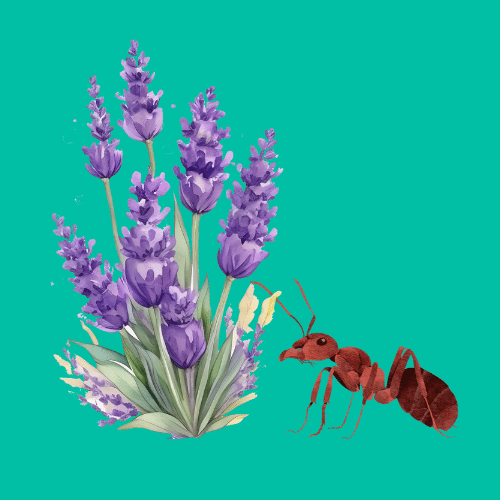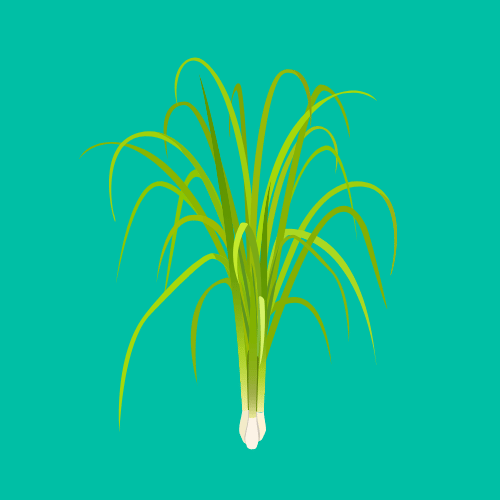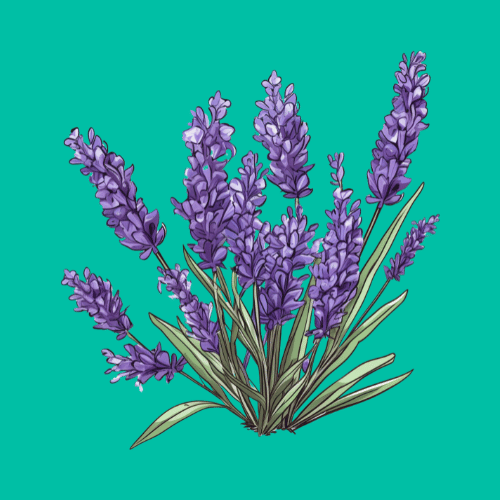Top Plants That Deter Pharaoh Ants: A Natural Way to Keep Pests Away

Pharaoh ants are a persistent problem for many gardeners, known for their tiny size and stubborn colonies. They are almost as bad as termites!
While ant baits and traps are effective, using natural deterrents like specific plants can complement your pest control strategy.
Certain plants repel Pharaoh ants by emitting scents or producing chemicals that these pests dislike.
In this guide, we’ll explore the best plants to deter Pharaoh ants and how to use them effectively.
Get our Gardening Buddy and find veggies that fit your conditions best.
You Can Grow It!
Why Use Plants to Deter Pharaoh Ants?
Natural methods, like planting or placing ant-repellent plants around your home, are eco-friendly and chemical-free. These plants not only keep Pharaoh ants at bay but also add aesthetic and aromatic value to your space.
Benefits of using plants to Deter Pharaoh Ants:
- Chemical-Free Repellent: Safe for kids, pets, and the environment.
- Dual Purpose: Many repellent plants also work as herbs or decorative greenery.
- Continuous Defense: Plants provide a long-term, low-maintenance solution.

Lemongrass
Lemongrass contains citronella, a compound that Pharao ants and other insects dislike. Its tall, grassy clumps create a natural shield against pests.
How to Grow Lemongrass:
- Light Requirements: Full sunlight is essential for lemongrass.
- Soil: Well-draining soil with plenty of organic matter.
- Watering: Water frequently, especially in hot weather. Keep the soil moist but not soggy.
- Growth Tip: Lemongrass is a tropical plant, so protect it from frost in colder climates.
How to Use Lemongrass to deter Pharao ants:
- Plant lemongrass in your garden or near ant trails.
- Crush the leaves to release more citronella and spread the scent.

Thyme
Thyme’s earthy aroma deters ants and other pests while serving as a versatile herb in the kitchen.
How to Grow Thyme:
- Light Requirements: Full sun is ideal for thyme.
- Soil: Well-drained soil with a sandy or rocky texture.
- Watering: Water sparingly, as thyme prefers dry soil.
- Growth Tip: Thyme is hardy and drought-tolerant, making it easy to care for.
How to Use Thyme to Repel Pharao Ants:
- Grow thyme in pots near windowsills or doorways.
- Scatter dried thyme leaves in problem areas indoors.

Mint
Mint is a powerhouse in natural pest control. Its strong, menthol aroma overwhelms the scent trails ants use for navigation, effectively disrupting their activities.
How to Grow Mint:
- Light Requirements: Mint thrives in partial to full sunlight.
- Soil: Well-draining soil enriched with compost is ideal.
- Watering: Keep the soil consistently moist but not waterlogged.
- Growth Tip: Mint spreads quickly and can take over your garden if unchecked. Plant it in containers to control its growth.
How to Use Mint to deter Pharao ants::
- Plant mint near entry points or in garden beds.
- Place fresh mint leaves in problem areas inside your home.

Rosemary
Rosemary is a robust herb with a strong aroma that ants avoid. It also serves as a versatile culinary herb.
How to Grow Rosemary:
- Light Requirements: Rosemary loves full sunlight.
- Soil: Well-draining soil with a slightly sandy texture. Avoid heavy, water-retaining soil.
- Watering: Allow the soil to dry out between waterings to prevent root rot.
- Growth Tip: Trim regularly to encourage bushier growth and prevent legginess.
How to Use Rosemary to deter Pharao ants:
- Place potted rosemary plants near ant-prone areas.
- Use rosemary sprigs around kitchen counters or near entry points.

Marigold
Marigolds produce chemicals that repel ants and other garden pests, making them a vibrant addition to any pest control strategy.
How to Grow Marigolds:
- Light Requirements: Full sun is best for marigolds.
- Soil: Marigolds grow in a wide range of soils but prefer well-draining soil.
- Watering: Water regularly, but avoid wetting the foliage to prevent fungal diseases.
- Growth Tip: Deadhead spent blooms to encourage continuous flowering.
How to Use Marigolds to deter Pharao ants:
- Plant marigolds along the perimeter of your garden or home.
- Use marigold petals in sachets for indoor ant deterrence.

Lavender
Lavender’s soothing scent for humans is a nightmare for ants. Its essential oils are potent ant repellents, making it an excellent natural barrier around your home.
How to Grow Lavender:
- Light Requirements: Lavender requires full sun.
- Soil: Well-drained, slightly alkaline soil is best. Add sand or gravel to improve drainage.
- Watering: Water sparingly once established, as lavender is drought-tolerant.
- Growth Tip: Prune lavender after flowering to maintain its shape and encourage growth.
How to Use Lavender to deter Pharao ants:
- Grow lavender near windows, doors, or patios.
- Use dried lavender sachets inside drawers or cupboards.

How to Maximize the Effectiveness of Pharao Ant-Repelling Plants
- Strategic Placement: Position plants near ant trails, entry points, and high-traffic areas.
- Combine with Other Methods: Use plants alongside ant baits or traps for comprehensive control.
- Refresh Regularly: Crush leaves or use essential oils to enhance the scent barrier.
- Regular Maintenance: Keep plants healthy and vibrant to ensure they release their natural chemicals.
Preventive Tips to Keep Pharaoh Ants Away
- Seal Entry Points: Use caulk to block small cracks and crevices.
- Clean Regularly: Remove crumbs and food debris to eliminate ant attractants.
- Store Food Properly: Use airtight containers for pantry items.
- Eliminate Water Sources: Fix leaks and dry damp areas to make your home less appealing to ants.

Find the Vegetables that are Best for you
Using plants to deter Pharaoh ants is an effective, natural solution that enhances your home’s environment while keeping pests at bay.
By growing mint, lavender, rosemary, and other aromatic plants, you create a barrier that ants are reluctant to cross. Whether you grow them indoors or outdoors, these plants add value to your space while making your home less inviting to pests.
Combine this strategy with preventive measures and other pest control methods for the best results.
Get our Gardening Buddy and find veggies that fit your conditions best.
You Can Grow It!
Partners and Sponsors
We are forever grateful to our partners and sponsors. Send an email to team @ strongecho.com and let’s see how we can grow each other’s impact!





